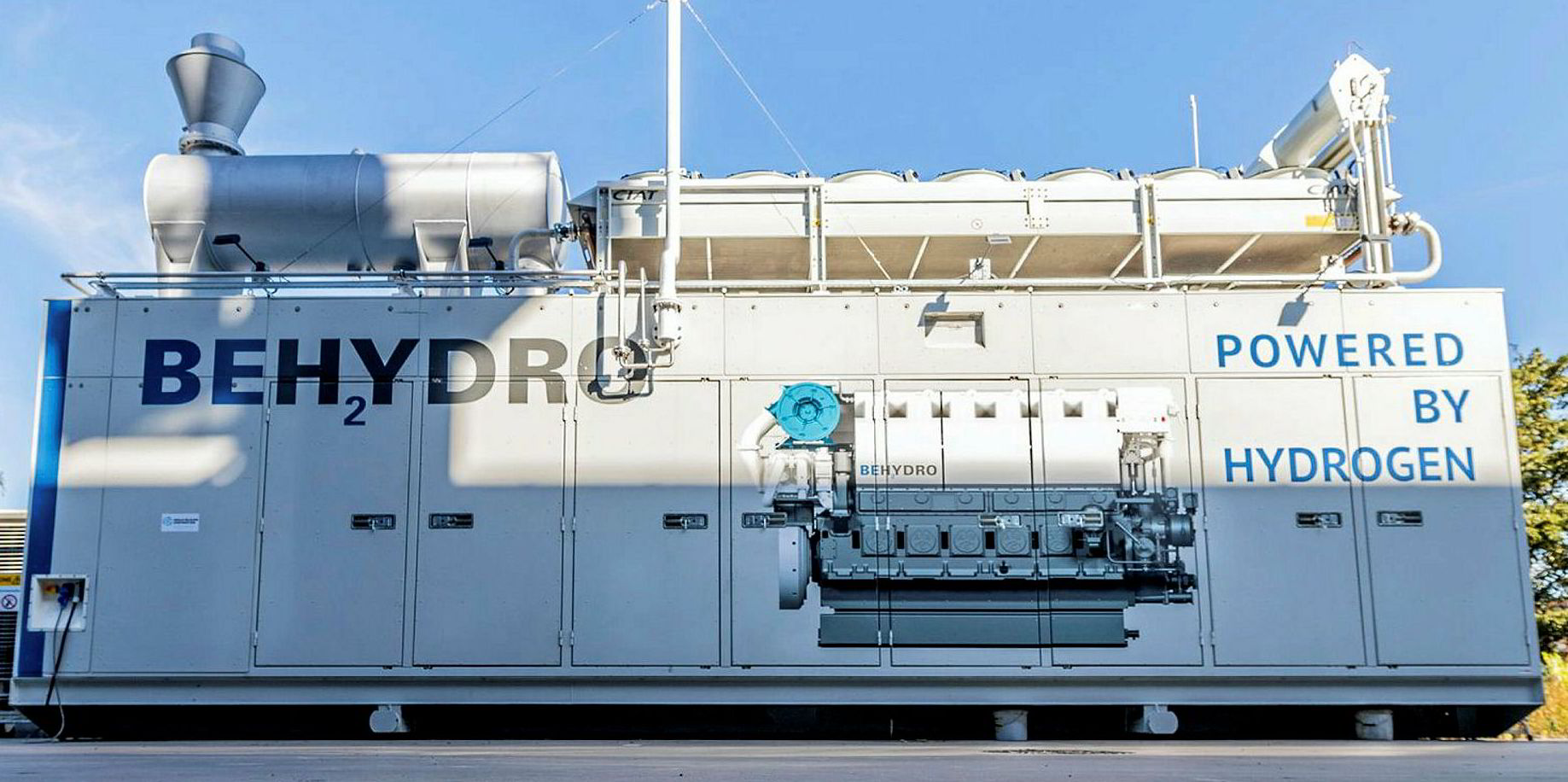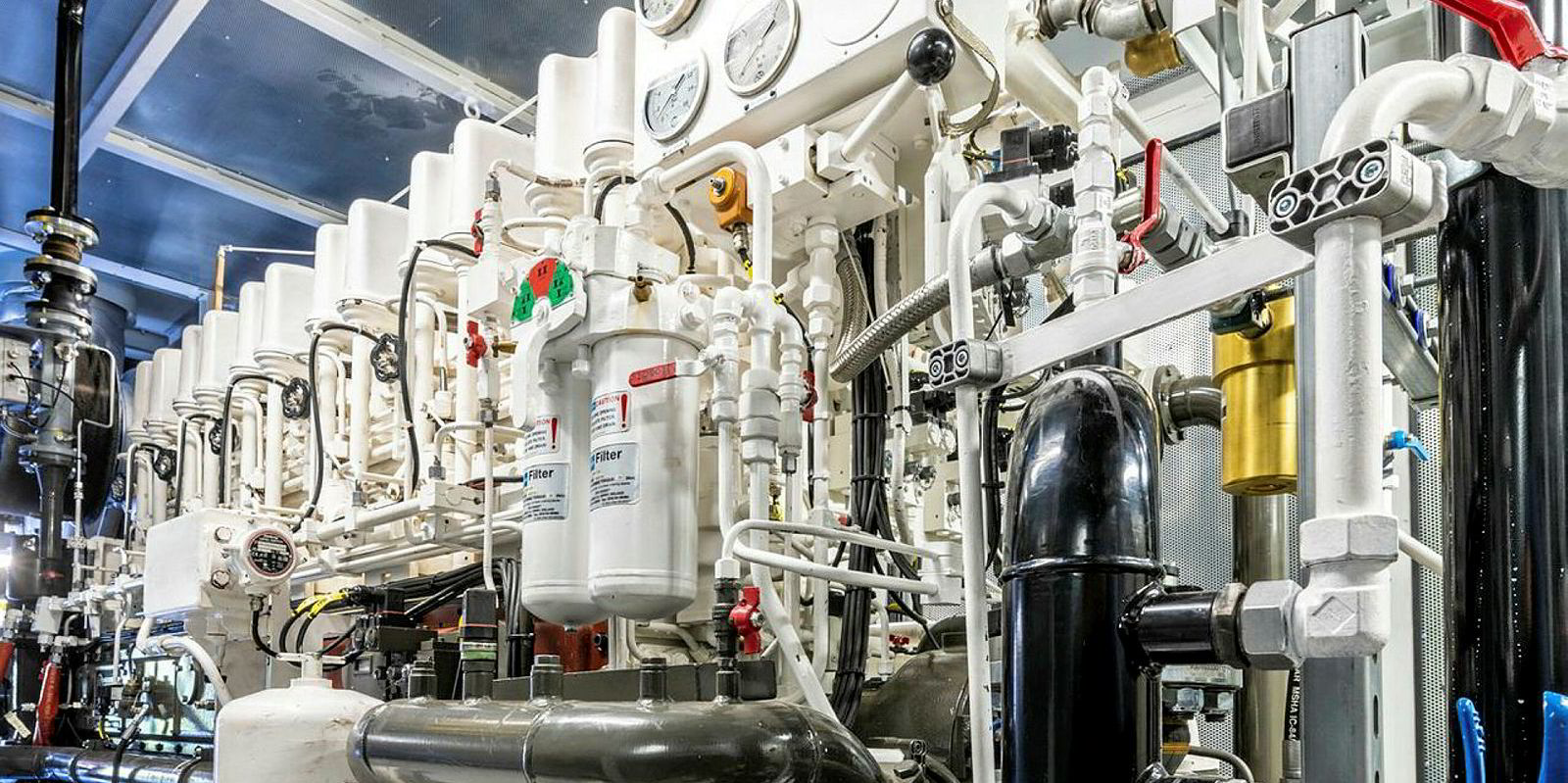Alexander Saverys-led Compagnie Maritime Belge (CMB) is behind the launch of a hydrogen-powered dual-fuel engine for use on ships, trains and power stations.
BeHydro, a joint venture formed by the Belgian shipping giant with local engine manufacturer ABC, plans to commercially produce up to 100 of the 1 MW engines per year.
The outfit also plans to roll out a mono-fuel engine design early next year.
The commercial launch of the hydrogen-powered engines will take place in Ghent on Thursday.
They are touted as the first hydrogen-powered dual-fuel engines with a capacity of 1 MW.
But the designs are sufficiently advanced to enable larger engines of up to 10 MW to be produced.
That is deemed adequate for main engines of smaller coastal vessels, inland shipping and tugboats, as well as the auxiliary engines for deepsea vessels.
But the engines will not be the exclusive preserve of shipowners and will be marketed to a range of industrial sectors, including trains and electricity generators.

CMB chief executive Alexander Saverys, who is seen as a leading advocate of low-carbon technology, said the BeHydro engines reinforced the European Union's vision on hydrogen.
They proved "that the energy transition for large-scale applications is possible today", he said.
"In theory, any large diesel engine can be replaced by a BeHydro engine. The hydrogen future starts today!" he said.
Three-years work
The launch of the BeHydro engine follows three years of research and development by the two Belgian partners.
In the first phase of development, up to 100 hydrogen-powered engines can be produced per year.
But BeHydro is developing a mono-fuel hydrogen engine that will be ready by the second quarter of 2021.
The focus on dual-fuel technology means the engines can continue to supply power, even if no renewable energy or hydrogen is available.
BeHydro estimates that by injecting and burning hydrogen, CO2 emissions are reduced by up to 85%.

Tim Berckmoes, chief executive of Ghent-based ABC, noted that BeHydro had already notched up its first commercial success with a launch order for two 2 MW dual-fuel engines.
These will be deployed aboard a hydrogen-powered tug, called HydroTug, in the port of Antwerp in 2022.
Several projects
BeHydro is one of a number of innovative hydrogen projects being pioneered by Antwerp-based CMB.
These are spearheaded by its new UK-based division CMB.Tech, which the Belgian company acquired in July 2019.
CMB.Tech had previously worked on the 16-passenger catamaran Hydroville, a pilot project to test hydrogen technology for application on larger seafaring ships.
But it is also involved in helping CMB test propulsion technology on smaller vessels.
That includes a hydrogen-powered crew transfer vessel, which CMB is building for the Dutch offshore wind sector.
Other projects involving CMB include a hydrogen-powered ferry being built in Japan.
The 80-passenger HydroBingo is scheduled for delivery by Tsuneishi Facilities & Craft in January.
Saverys is hoping that investments in CMB.Tech will form a profitable division of CMB, alongside the shipowner's bulker, container and tanker divisions.






